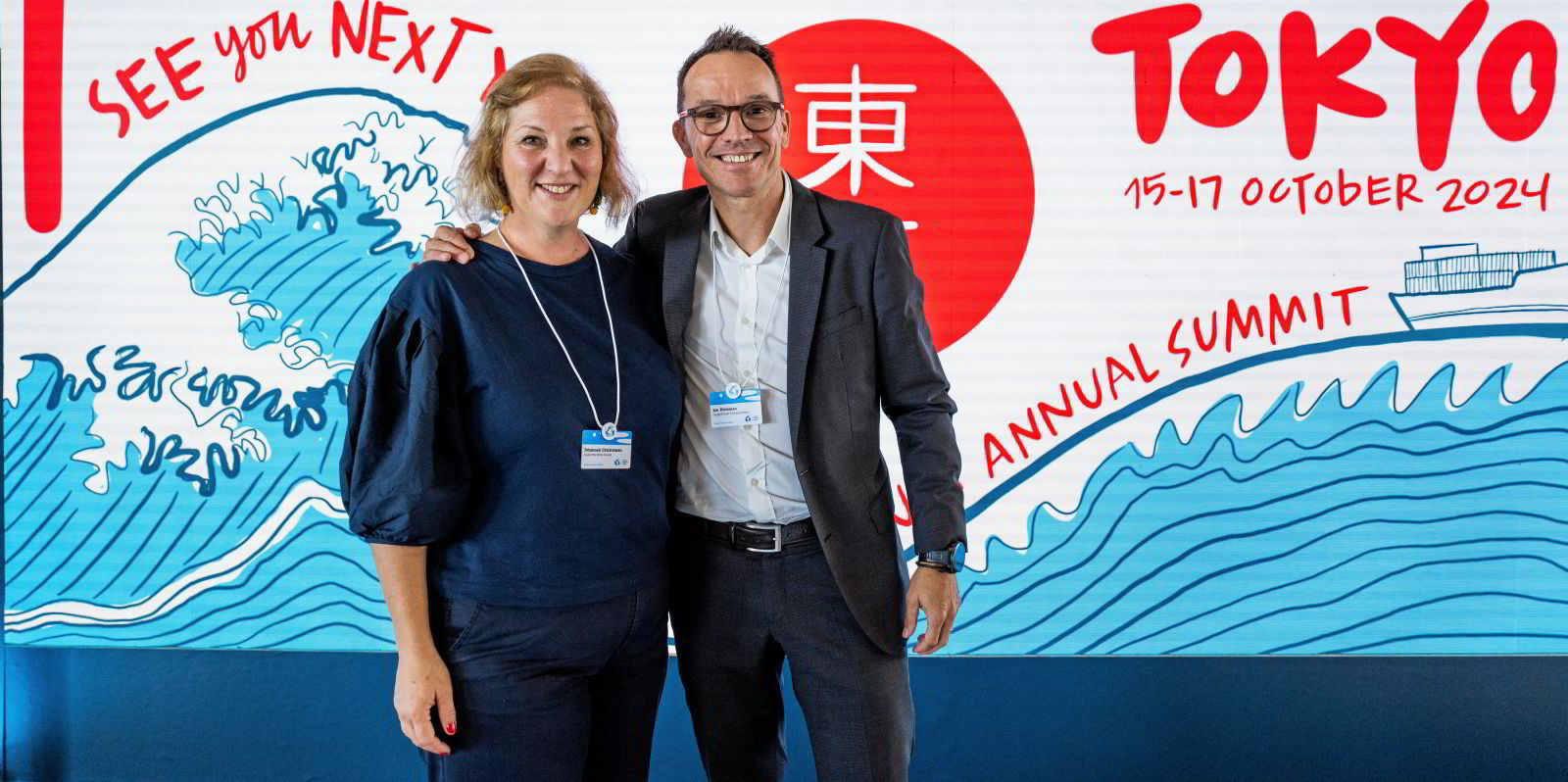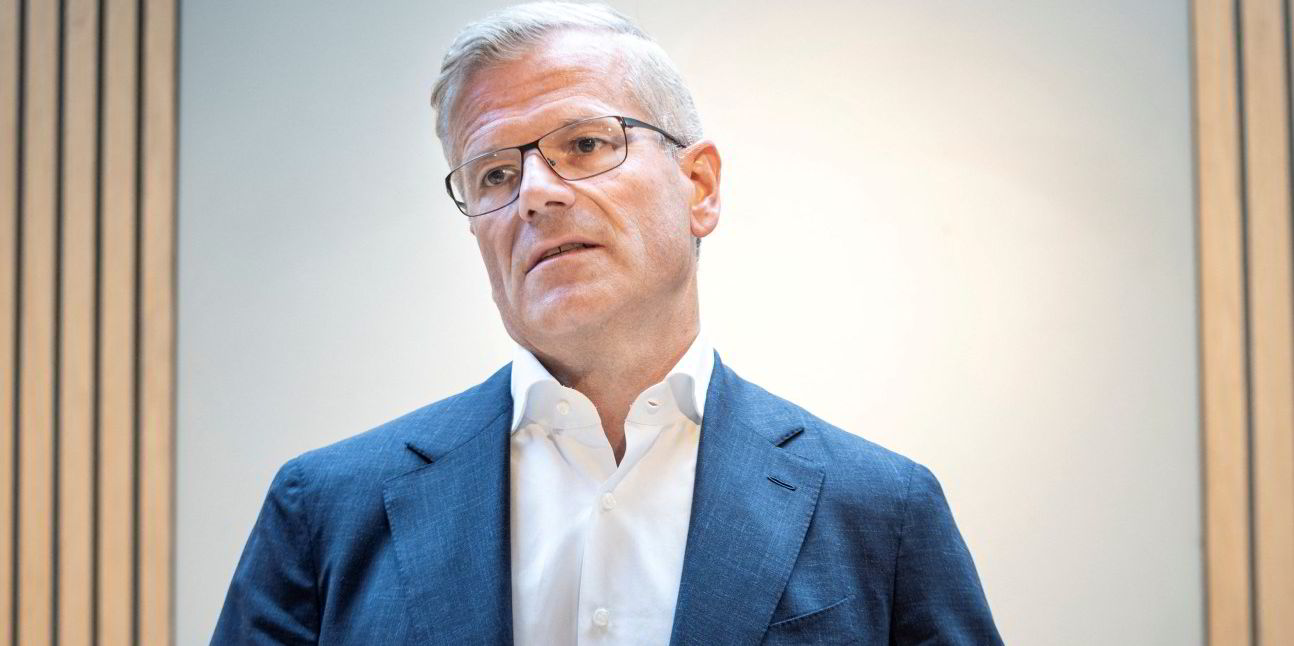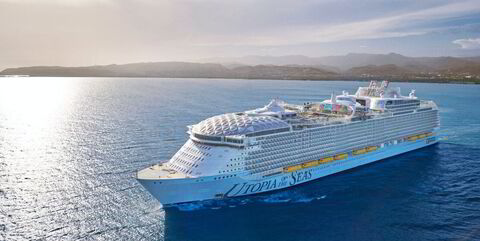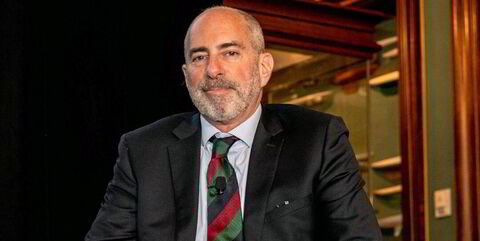“Never doubt that a small group of thoughtful, committed citizens can change the world; indeed, it’s the only thing that ever has.”
Those are the words of Margaret Mead, the American cultural anthropologist, and they eloquently capture the spirit of Johannah Christensen, one of the founders and chief executive of the Global Maritime Forum.
“You’re going to think I’m super-naff,” says the self-deprecating Christensen as we talk about her influences on the sidelines of the forum’s annual summit in Athens.

“When I was in university, there was a friend who shared that overused quote. It’s held true through everything I’ve done since, from the World Economic Forum to here at the GMF.”
As anyone who knows or has worked with her will appreciate, Christensen lights up any exchange with her energy and exuberance. But it has been her focus on values that over the past decade has built the Global Maritime Forum into one of the world’s most influential gatherings of senior figures in the global shipping ecosystem.
Her career path now seems to have been written for her to take her place leading such a coalition of like-minded executives who see a more sustainable future for shipping.
“Even as a student I’d worked on sustainability,” she says, running a corporate sustainability network in Copenhagen before she joined the World Economic Forum, where she was a programme manager for its annual meeting in Davos.
Then just over 10 years ago, the Danish Maritime Authority and Danish Shipping conceived the idea for a “Davos of shipping” scribbled on a Post-it note.
“Somebody knew somebody, who knew somebody, [who] said: ‘Hey, I know someone who actually did Davos, who’s actually worked on this before. Maybe we should ask her what she thinks?’” she recounts.
She was initially hired as a freelance consultant to frame the Danish Maritime Forum, which ran for three years as part of the Danish Maritime Days event. Backed by the Danish government, industry and AP Moller-Maersk, it was driven by the former senior Maersk executive Flemming Jacobs.
Leveraging his huge contact book and unstoppable powers of persuasion, the Danish forum evolved into the Global Maritime Forum with its first summit in Hong Kong in 2018, under the chairmanship of former Lazard financier Peter Stokes.
Central to the forum’s ethos were the principles of being multi-stakeholder, collaborative, global and inspirational.
“It's a full maritime ecosystem that includes the people who own the ships, operate, finance and trade them, regulators, academia and civil society. It includes all these different stakeholders that are in some way impacted by or have a stake in the maritime sector one way or another,” Christensen says.
“That’s what makes it different, and that’s what makes it special.”
The forum’s status as a not-for-profit organisation focused on sustainability and human well-being is “incredibly important”, she says.
Some traditional shipowners have been suspicious of what might be labelled its northern European or Scandinavian liberal approach to the industry’s challenges that stress sustainability above efficiency.
Christensen addresses the quandary head-on. “I think you need to do both,” she shoots back.
Reflecting her grounding in sustainable business, she continues: “Commercial imperatives only dictate that we pursue the path that we’re currently on because there are lots of impacts that have been externalised.”
Many environmental impacts until now have not needed to be accounted for.

“If we were to internalise them onto corporate balance sheets, then we would be in a completely different position,” she says. “If we look at the whole system, then we would recognise that it doesn’t make any sense!
“This is something that plays a huge role in the work that we do in the GMF, to look at things from a systems perspective.
“We are always thinking about this: Can we take a step back and look to the right and the left, to look at the whole system? Does that offer some different opportunities for us to act?”
This open-minded and collaborative approach has already generated industry-shaping initiatives such as the Poseidon Principles led by Citi’s Michael Parker, and the Sea Cargo Charter now led by Trafigura’s Rasmus Bach Nielsen.
Christensen stresses that it will be up to the members of the forum to shape the future. It is not for her to dictate. “If we’re looking into the future, I think the focus on human sustainability will only expand, it will only grow. There is momentum and focus on the human aspects,” she says.
But as for something new, she feels there is a bigger issue bubbling up.
“I think there was a nub of something in the discussion about the ’new age of accountability’,” she says. “It’s my favourite topic!”




